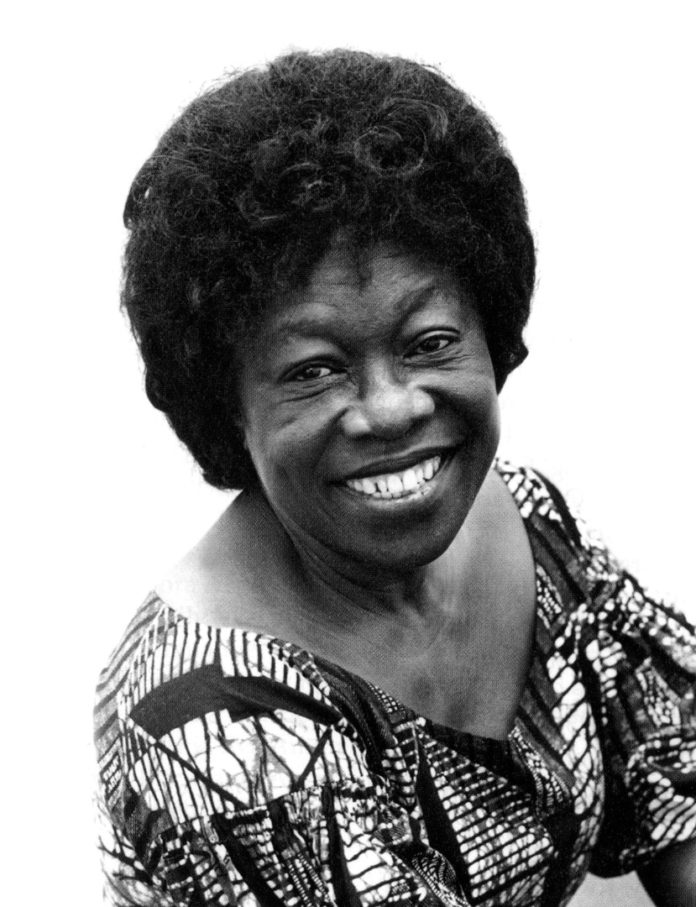Dr. Letitia Obeng was born in Ghana and attended LSTM after moving to Liverpool in the 1960s. She was the first Ghanaian woman to receive a doctorate and bachelor’s degree in science.
The scientist has disproved the myth that science and technology are the domain of men. She was described by many as a brave woman who never allowed obstacles to claim superiority in her career ambitions.
Dr. Letitia conducted her research on Simuliidae, or black fly, because of its relevance as the vector for onchocerciasis (river blindness), under the supervision of Dr. Noel Hynes, a fresh water biologist.
After leaving LSTM, she went home to set up the National Research Institute of Aquatic Biology for research on Ghana’s huge man-made Volta Lake and its inland water system.
She was invited to take part in the 1972 UN Human Environment Conference in Stockholm and in 1974 was recruited by the United Nations Environment Programme (UNEP) as the Officer in charge of Water and Soil in the global Environment Program.
In 1980, she was appointed the Director of the UNEP Regional Office for Africa and UNEP’s Representative to Africa where she worked with the 53 Environment Officers of the Africa Region to produce a Program of Action for the African Environment. In 2006, Letitia was honoured with her country’s highest award of the Order of the Star of Ghana.
Elected the first woman to the Fellowship of the Ghana Academy of Arts and Sciences, in 2008, she was unanimously chosen as the first female President.
Describing her as the grandmother of female scientists in Ghana and an unsung heroine, Letitia, was born on January 10, 1925, at Anum in the Eastern Region, to the Very Reverend E.V. Asihene, a Former Moderator of the Presbyterian Church of Ghana and Mrs. Dora Asihene. Little as she was Letitia started her primary education at Abetifi-Kwahu in the Eastern Region and continued at a middle school in Kyebi.
She was fortunate to have her secondary education at the Achimota School from 1939-1946 when she took the London University International Examination since there was no university in the then Gold Coast, those who passed that examination had to continue their university education abroad.
Letitia was then given a government scholarship to do her Bachelor of Science degree in Zoology at the University of Birmingham from 1948 to 1952.
“There were not many girls studying Zoology and only eight girls in that class of which I was the only African and for that matter the only black and that made me stand out of the eight in the class.”
She always found herself in the minority because she was first a woman studying in the field and secondly because she was a black African.
She never thought of the world being in a man’s world and that gave her the urge that women could also do what men did and even do it much better if they worked towards it with determination.
Letitia returned home as the first female scientist in Zoology and immediately had employment at the University College of Science and Technology.
With the help of her husband, who was also working at the College, the laboratory was furnished with the needed equipment and taught three sets of students, who at the end of their courses had good grades with most of them entering into medicine and pharmacy.
From 1974 to 1985, Dr. Obeng was appointed the Director at the Regional Office for Africa of the United Nations Environment Programme, initiator and co-coordinator of the African Sub-Regional Environment Programmes, and also held the position of a senior Programme Officer in charge of Water for five years.
In 1998, she received the first national award for Science and Technology, Biological Sciences, the first female Executive Member of the Council of the Africa Leadership Forum. She also received an honorary Doctor of Science degree from the Kwame Nkrumah University of Science and Technology (KNUST) in 2017.
She launched her first book Anthology of a Lifetime in July 2019.
The 381-page book is a compilation of some of the distinguished scientist’s talks, speeches, writings, and publications within the last 60 years.
Dr. Letitia Obeng‘s other publications include “Man-made Lake”; “Environmental Management”; “Volta Lake Ecology” and “Environmental Problem of Africa”; “Health Hazards Of Agricultural Projects”; “Dr. Ephriam Amu – A Portrait of Cultured Patriotism” and “Parasites: The Sly and Sneak Enemies Inside You”.



